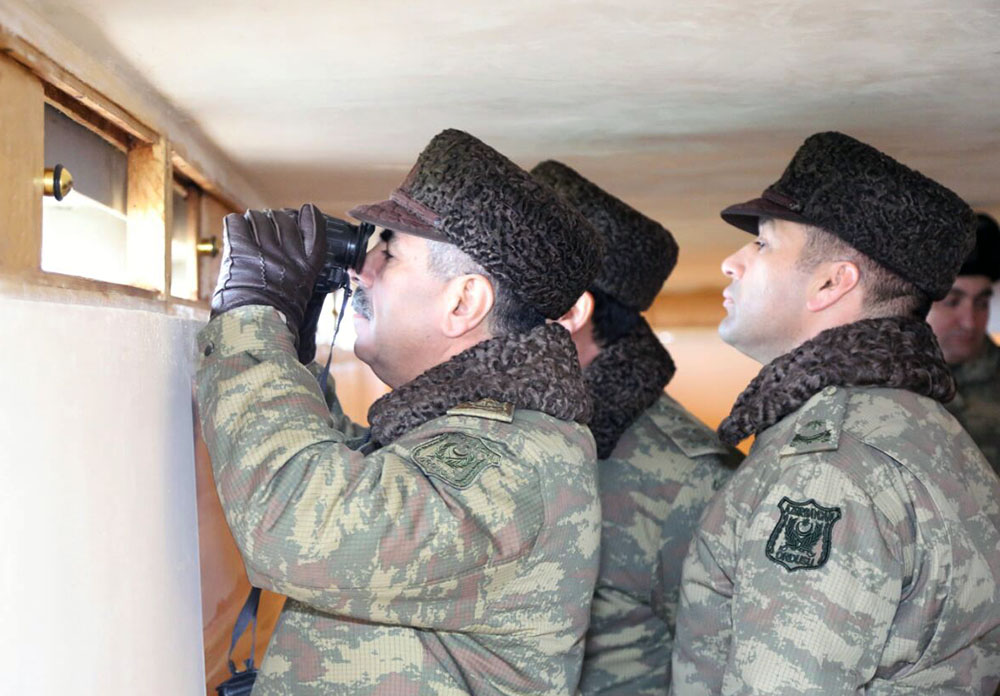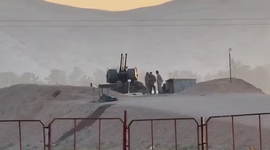A peaceful resolution to one of the South Caucasus’ longest-lasting conflicts, namely the Nagorno-Karabakh conflict between Armenia and Azerbaijan, was again identified by the United Nations as a necessity to sustainable peace in the region.
"I hope that during this period, which is sensitive to the peace process, these efforts will be more effective and will lead to positive results that will help establish lasting peace and ensure prosperity for all the peoples of the South Caucasus," UN Secretary General Antonio Guterres said in a message to Armenia’s newly-elected Prime Minister Nikol Pashinyan. The message was posted to the Armenian government’s website according to RIA Novosti.
Guterres underlined firm support of the UN to the Organization for Security and Cooperation in Europe (OSCE) Minsk Group’s efforts in settling the conflict peacefully.
In 1993, during the height of a three-year full-scale war between the two neighbors, the UN Security Council adopted four resolutions regarding the conflict, condemning the occupation of Azerbaijan’s Nagorno-Karabakh region and seven surrounding districts by Armenia, as well as demand the withdrawal of all occupying Armenian forces. To this day, all four resolutions go unfulfilled.
Over three years, the war claimed the lives of over 20,000 Azerbaijanis, while nearly one million Azerbaijanis were internally displaced and 4,000 went missing. The full-scale war came to a stop in 1994, thanks to a ceasefire, but Azerbaijan’s Nagorno-Karabakh region and seven surrounding districts are still occupied by Armenia, totaling about 20 percent of Azerbaijan’s internationally recognized territory.
Serzh Sargsyan, Armenia’s former president and prime minister, who was succeeded by Pashinyan, was a field commander in the fight for Nagorno-Karabakh region, and has time and again, since his rise to power in 2008, announced that it being turned back to Azerbaijan was unacceptable to his government. But with Sargsyan’s recent dethronement and Pashinyan’s rise, some remain hopeful that new life will be injected back into the long-standing issue and gain some traction.
But Pashinyan, a former journalist that had been jailed in 2009 after inciting a public unrest, appears to be loyal to the same hardline position on Nagorno-Karabakh conflict as that of his predecessor.
"I am ready to negotiate with the leadership of Azerbaijan about the settlement of the Karabakh conflict, but at the same time, I want to note that the talks cannot be effective unless one of the parties to the conflict participates,” Pashinyan said, according to RIA Novosti, referring to bogus regime in Nagorno-Karabakh region that is backed by Armenia.
Officials in Baku think Pashinyan to not be fully informed about the conflict and its detailed history of resolutions.
“Pashinyan may be lacking direct information and experience about the negotiation process,” said Hikmet Hajiyev, a spokesperson at the foreign ministry.
“We would like to remind him that the Minsk Group was established pursuant to 1992 decision of the OSCE at the Helsinki Ministerial Council. Armenia and Azerbaijan were identified as parties to the conflict, while Armenian and Azerbaijani communities of Azerbaijan’s Nagorno-Karabakh region were defined as interested parties in the conflict.”
“So, this is Armenia who committed an occupation and aggression against Azerbaijan. Armenia bears solely the responsibility for the results of this occupation and aggression. And the party to the conflict both real and based on international law is the Republic of Armenia.”
Hajiyev called on the Pashinyan-led government of Armenia not to reinvent the wheel, “and look for ungrounded novelties” during any future negotiation process. He reiterated Azerbaijan’s readiness for substantive and intensive talks to bring the conflict to an end and in line with mediation efforts provided by the OSCE Minks Group.
Ilgar Velizade, a political analyst in Baku, says Pashinyan is known for his hostile opinions about Azerbaijan and the Nagorno-Karabakh conflict.
“After the April events of 2016,” Velizade said, referring to a four-day war fought between Armenia and Azerbaijan and the largest escalation of the conflict since the 1994 ceasefire, “Pashinyan and his associates in a rather tough form called for revenge with Azerbaijan, and demanded that the Armenian army should take the offensive, seizing new Azerbaijani territories,” Velizade wrote on his Facebook page.
“Perhaps, with the coming to power, they will get better, they will have more state thinking because they will have to reckon with the realities of the international situation. But, for now, their maximalism is a destructive factor that can affect the negotiation process only negatively.”







 Russian peacekeeping forces, deployed in the Karabakh (Garabagh) region of Azerbaijan since 2020, have commenced their withdrawal from the area.
Russian peacekeeping forces, deployed in the Karabakh (Garabagh) region of Azerbaijan since 2020, have commenced their withdrawal from the area.
 Azerbaijan officially unveiled the logo for the upcoming 29th session of the Conference of the Parties to the United Nations Framework Convention o...
Azerbaijan officially unveiled the logo for the upcoming 29th session of the Conference of the Parties to the United Nations Framework Convention o...
 Iran’s Foreign Minister, Hossein Amir-Abdollahian, has labeled a foiled Israeli drone attack in certain parts of the country as a "failure" for Isr...
Iran’s Foreign Minister, Hossein Amir-Abdollahian, has labeled a foiled Israeli drone attack in certain parts of the country as a "failure" for Isr...



